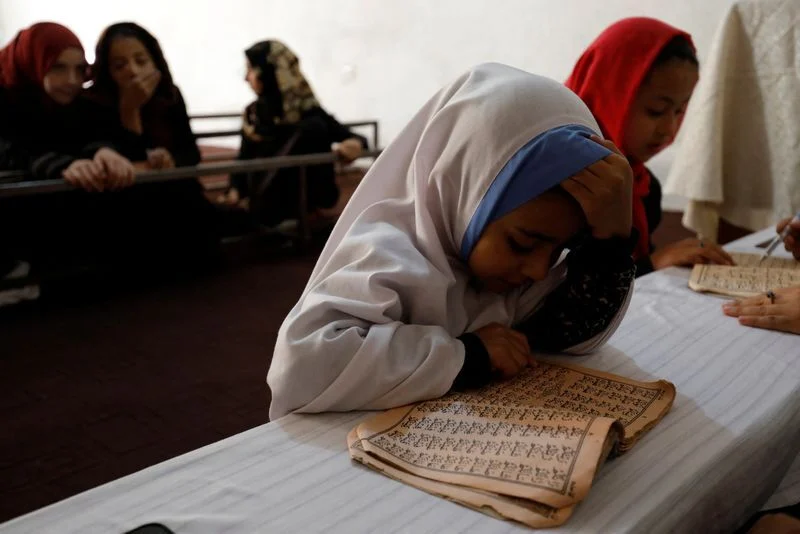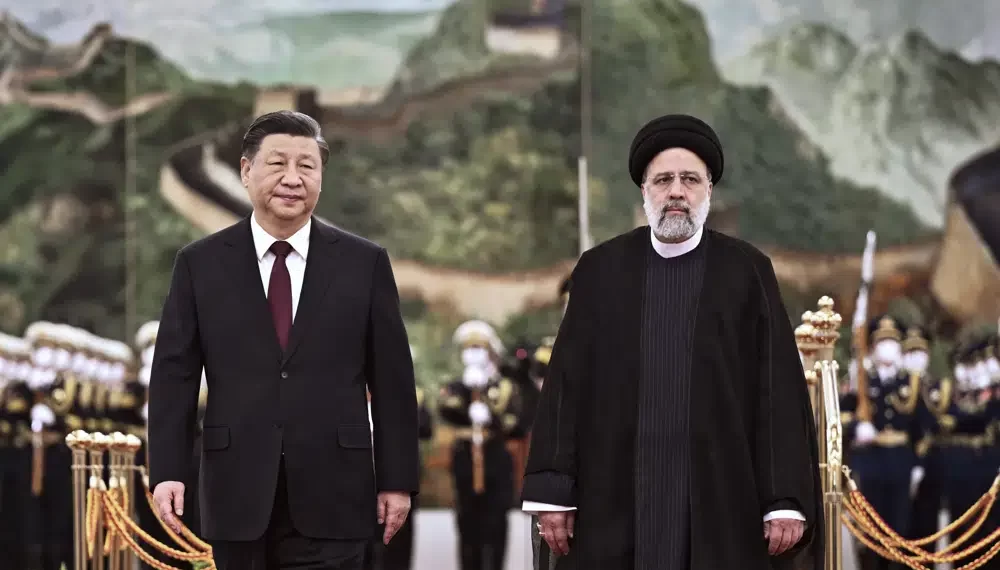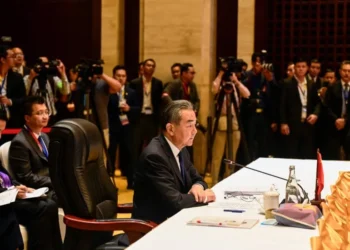China and Iran have pressed their mutual neighbor Afghanistan to end restrictions on women’s work and education.
The call came in a joint statement issued on Thursday, February 16, 2023 at the close of a visit to Beijing by Iranian President Ebrahim Raisi during which the two sides affirmed close economic and political ties and their rejection of Western standards of human rights and democracy.
Since taking over Afghanistan in August 2021, the Taliban has banned women and girls from universities and schools after the sixth grade and forced out those in elected offices and other prominent positions.
“The two sides … called on the Afghan rulers to form an inclusive government in which all ethnic groups and political groups actually participate, and cancel all discriminatory measures against women, ethnic minorities and other religions,” the statement said, adding that the U.S. and its NATO allies “should be responsible for the current situation in Afghanistan.”
The U.S. had backed Afghanistan’s elected government against the Taliban, but withdrew amid the rising costs and dwindling domestic support for a government that was unable to counter a Taliban revival.
The call for women’s rights is notable coming from Iran’s hardline Shiite Muslim regime, which has been challenged by months of protests sparked by the death of a young woman in police custody for allegedly violating clothing requirements.
The country’s theocracy has executed at least four men since the demonstrations began in September over the death of Mahsa Amini. All have faced internationally criticized, rapid, closed-door trials.
The bulk of the China-Iran joint statement emphasized strong political and economic ties, the quest for peace and justice in the Middle East and denuclearization in spite of Tehran’s alleged drive to produce atomic weapons.
Xi and Raisi attended the signing of 20 cooperation agreements including on trade and tourism, the Chinese government announced. Those add to a 25-year strategy agreement signed in 2021 to cooperate in developing oil, industry and other fields.
China is one of the biggest buyers of Iranian oil and a major source of investment.
Iran has struggled for years under trade and financial sanctions imposed by Washington and other Western governments. The U.S. government cut off Iran’s access to the network that connects global banks in 2018.
Afghan Girls Enroll In Madrasas

Many girls in Afghanistan have enrolled in madrasas (religious schools) after the high school and universities ban.
The Taliban administration barred female students from most High schools last March, and from universities in December.
Days after the universities decision, it banned most Afghan women from working for NGOs, leaving thousands of educated women unable to do their jobs and forcing many aid groups to partially suspend operations during a humanitarian crisis.
Madrasas are devoted to study of the Holy Quran and Islamic texts.
Madrasas, part of Afghan life for centuries, usually do not offer the secular secondary and tertiary education needed to pursue careers such as law, medicine, engineering and journalism; the kind of education that is still available to Afghan boys.
Most of the girls fear loss of professional career prospects.
“Due to the closing of schools, the number of students has increased by around 40%,” said a muslim, who runs a madrasa mainly for teenage girls in north Kabul.
Abdul Maten Qanee, the Spokesman for the information ministry, disclosed to reporters that the government was not opposed to girls having secondary and tertiary education.
The Spokesman said there were several issues to be overcome, though, including the problem of some mixed-gender institutions, girls not meeting some interpretations of Islamic dress, and girls not being accompanied by male guardians.
“We are not against education, we just want rules to be followed and implemented, and the culture, traditions and values of Afghans to be considered. We want females to have a modern education, society needs this.”
Abdul Maten Qanee
Qanee said madrasas were open for girls of all ages. He added that a government committee was looking into adding secular subjects to madrasas alongside religious study, a development that has not been previously reported.
Qanee did not provide further details on the committee’s work.
READ ALSO: Israel’s Foreign Minister Visits Kyiv





















